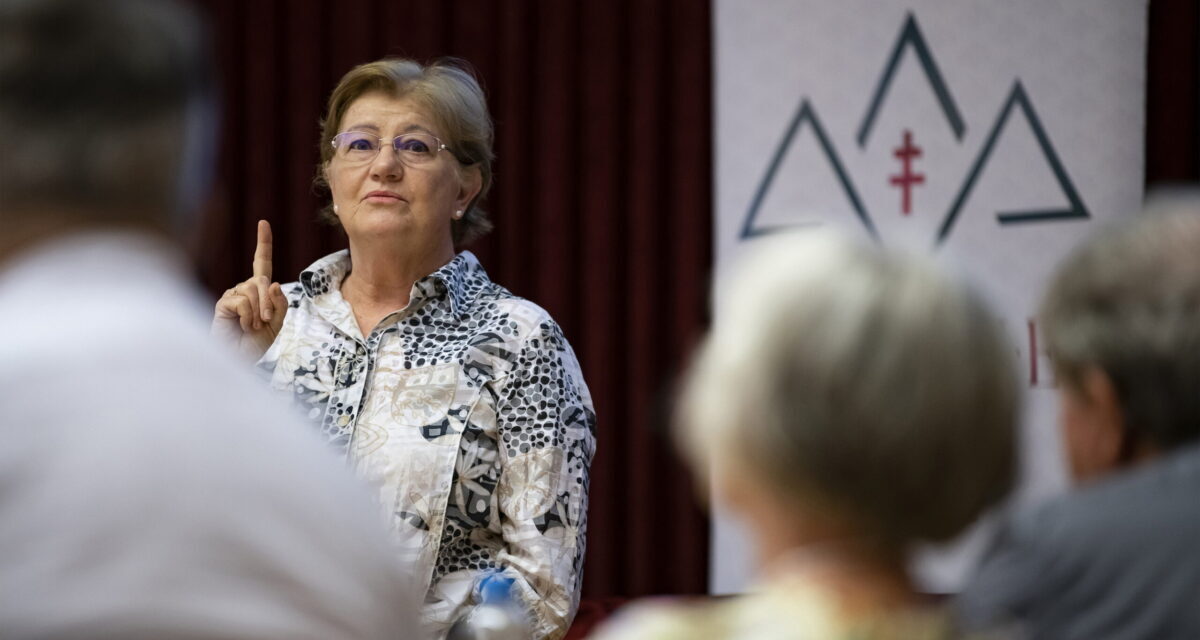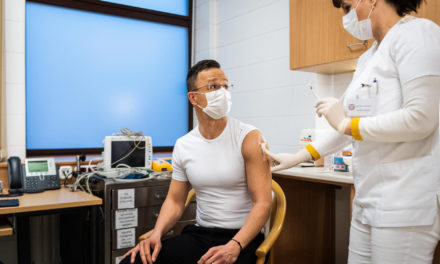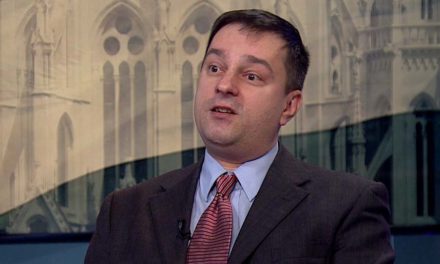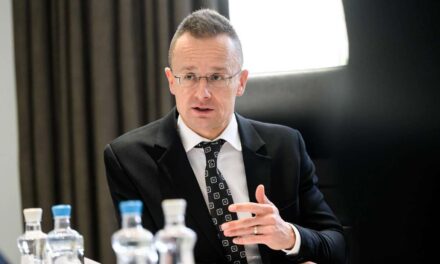This, the most important principle for the government, was stated by the prime minister's chief adviser in his presentation at the conference of the Foundation for the Evangelization of Hungarians in the Carpathian Basin in Nyíregyháza on Saturday.
He explained:
"This includes the fact that we count on everyone who lives anywhere in the world, and at the same time, Hungarians living anywhere in the world can count on us too."
Not only as a community, but also as an individual, as the government not only provides moral but also financial support to Hungarian communities and young people in learning Hungarian language, culture and traditions. Katalin Szili added,
"this gives us our identity, the self-identity on the basis of which we say that we are Hungarian, since this is what unites us in our thinking, language, and culture".
The Chief Advisor to the Prime Minister emphasized that it is of utmost importance for the government to ensure living and prosperity in the homeland. Citing the Basic Law, he emphasized that Hungary bears responsibility for the Hungarians living outside the borders in order to preserve
"protecting the intellectual and spiritual unity of our divided nation and our identity is the basic duty of the state".
Hungary promotes the survival and development of its communities living across the border, supports their efforts to preserve their Hungarianness, and also the enforcement of their individual and community rights.
Katalin Szili said that part of the Hungarian Basic Law also states that the national minorities living in the country are state-creating factors, but this is only included in the constitutions of Slovenia and Serbia among the neighboring countries. On such a basis, there is no basis for national minorities to be listed as equal citizens.
The chief adviser to the Prime Minister said that in 2011, the government adopted the document on the strategic framework of the national policy, one of the important provisions of which is that
"Hungary supports the territorial and/or personal autonomy of Hungarian communities abroad".
He added that, contrary to the claims of Romanian politicians, it is a mistake that the Hungarian government wants ethnic autonomy. It has always been communicated that where there are Hungarians living in blocks and where Hungarians are in the majority - as in Székelyföld - territorial autonomy could be ensured, said the chief adviser.
In her presentation, Katalin Szili spoke about the effects of illegal migration, the situation of national minorities, and also reported on demographic data.
He said that according to the latest census data, the number of Hungarians in Romania is 1,113,973, which includes 4.5 percent of the 2.48 million people whose nationality is unknown. He added that 977,450 Hungarian nationals declared themselves to be Hungarian speakers.
According to the 2021 data, there are fewer Hungarians in Slovakia than in 2013, 456,154 people make up the Hungarians of the highlands. Also according to 2021 data, 10,314 Hungarians live in Croatia and 7,218 declared themselves to be Hungarian speakers.
He said that there was no traditional census in Slovenia, starting from the 2002 data, the census data were derived from the existing statistical data. Based on this, six thousand Hungarians can live in the country, some estimate this number at ten thousand. According to a 2017 survey in Transcarpathia, the number of Hungarians may be 131,000. Based on this, the number of Hungarians decreased by 21,000, i.e. by 13.7 percent, compared to the 2001 census.
After her presentation, Katalin Szili, together with Dénes Keresztes, the vice-president of the Association of Christian Intellectuals, opened the photo exhibition of the Foundation for the Evangelization of Hungary in the Carpathian Basin, which presents the works of Hungarian photographers from across the border related to Christian holidays.
Péter Krisztián Zachar, chairman of the foundation's board of trustees, said that the conference was organized for the third time, to which Christian ecumenical civil organizations were invited, whose aim is to strengthen faith locally in the Carpathian basin and to serve Hungary's survival.
MTI
Featured image: MTI/Attila Balázs












